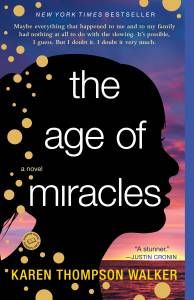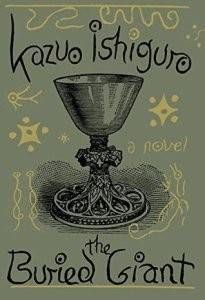
When Reality Mirrors Fiction
Let’s look back to December:
This holiday season was odd for many people in the U.S. On the East Coast, the temperature rose to mid-seventies in areas where traditionally, high fifties are the peak. In other places there were tornadoes in the winter time– according to Weather.com, this was a tornado month similar only to 1953. Then there were floods this year as well, including the Mississippi River’s crest.
The weather’s odd shifts outside of typical patterns was downright bizarre.
On December 23rd, I hiked through the woods in shorts and a t-shirt and wondered if the birds felt as confused as I was. And then this reminded me of a book.

Nobody wants to be reminded of the end of the world.
Yes, I know it’s El Niño. I understand this. I also know, though, the theory that El Niño can be exacerbated by shifting climate temperatures. I was the generation of children told that we would be the first ones to experience climate shifts, and that our children would be the first generation that would have to change their lives to continue within these influences if nothing is done. And then, I’m reminded of The Age of Miracles again– the relationship between generations as a young woman watches her parents and their flawed reactions to uncontrollable events. Some books, it seems, you’ll never be able to escape from.
I bring this up because recently I seem to be noticing a consistent overlap between my life and the novels that I read. Dystopian fiction seems to be coming alive in tiny ways.

Clearly, once my mind got on this track, I couldn’t seem to turn off the reminders.
As little hints like these have slipped into my life, I’m reminded again why fiction isn’t truly fiction at all. There are lots of quotes regarding this, but the one that comes to mind is Stephen King’s: “Fiction is the truth inside the lie.”
In other words, fiction is the reflective element that allows us to see the world as it is. The examples I’ve given here are a little too concrete, or too on-the-nose, in some ways, but there is a purpose in this sense of recognition, whether it’s direct or conceptual. And really, it’s ok that in this case, my connections felt disconcerting– there’s a purpose in relaying that emotion too.
Above all, fiction can reveal where our flaws are taking us. I recognized the unease of The Age of Miracles, because I could then see it in myself. What can you see in your reflection?
















